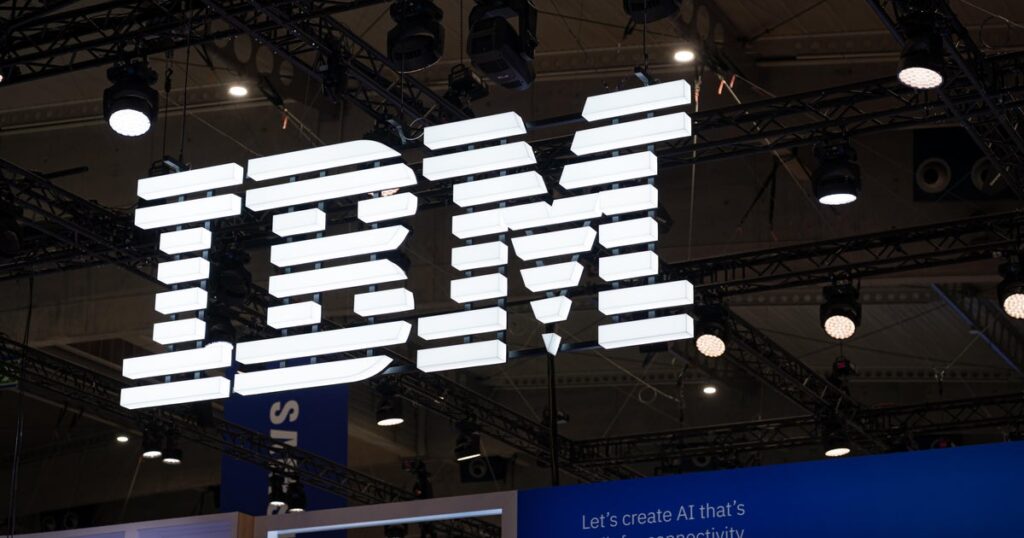IBM on Monday announced that it will invest $150 billion in U.S. manufacturing to „fuel the economy.“
The investment will include more than $30 billion that will go toward research and development to allow the computing giant to continue manufacturing its mainframe and quantum computers in the U.S.
„Technology doesn’t just build the future — it defines it,“ said Arvind Krishna, IBM chairman, president and chief executive officer in a statement Monday. „We have been focused on American jobs and manufacturing since our founding 114 years ago, and with this investment and manufacturing commitment we are ensuring that IBM remains the epicenter of the world’s most advanced computing and AI capabilities.“
IBM’s mainframes are manufactured in Poughkeepsie, New York.
The investment comes as President Trump implements a sweeping tariff regime aimed at encouraging companies to expand their manufacturing footprint in the U.S. Although not all the companies pledging to expand in the U.S. have directly cited the tariffs as a motivating factor, the White House has touted such corporate commitments as wins.
In March, for example, the White House celebrated pharmaceutical company Johnson & Johnson’s plan to invest $55 billion in U.S. manufacturing, calling it a „massive victory in President Donald J. Trump’s unrelenting pursuit of American manufacturing dominance“ in a statement on its website.
Technology leaders Apple and Nvidia have also announced substantial commitments to expanding their U.S. manufacturing capabilities. The iPhone maker said in February it is committed to spending more than $500 billion on growing its U.S. manufacturing facilities and increasing jobs at its plants in Arizona, California, Iowa, Michigan, Nevada, North Carolina, Oregon, Texas and Washington.
Apple also plans to build a new, 250,000-square-foot factory in Houston that will build servers that power Apple Intelligence, the company’s AI.
American chip maker Nvidia in April said it will start manufacturing chips and AI supercomputers in the U.S. in a move the company said „strengthens our supply chain and boosts our resiliency.“
